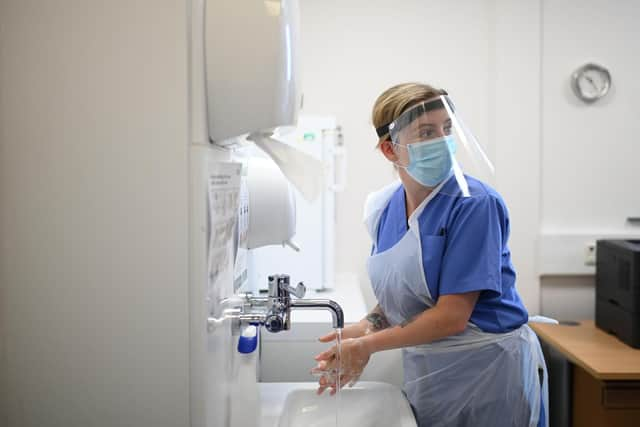'I was lucky' - Edinburgh heart patients among most likely to receive urgent treatment in Scotland
and live on Freeview channel 276
Let us know what you think and join the conversation at the bottom of this article.
Echocardiograms are one of the most widely used diagnostic tests in cardiology, which allows doctors to understand whether the patient’s heart valves are working properly and, if not, how serious the problem is.
Figures obtained from a Freedom of Information request show that 78 percent of patients from NHS Lothian received an echocardiogram in just one month. While NHS Shetland saw just 21 per cent of patients within a month.


Advertisement
Hide AdAdvertisement
Hide AdExpert cardiologists from Edinburgh University have called for a nationwide register of heart valve disease to better understand the imbalance of care.
Chair of Clinical Cardiology and consultant cardiologist at Edinburgh University, Professor Marc Dweck said: “In Scotland, we urgently need a nationwide register of heart valve disease so we can understand how patients with valve disease are being treated and whether they are getting access to the care they need.
“On a regional scale, we know that there are disparities, for example waiting lists for diagnostics in NHS Lothian vs. NHS Shetland are very different.
“It is so important that patients everywhere have equitable and rapid access to an echocardiogram.”


Advertisement
Hide AdAdvertisement
Hide AdThese regional discrepancies are following the impact of the Covid-19 pandemic, which saw the number of NHS patients presenting to cardiology services for serious heart problems decrease by more than half during the lockdown.
‘I was lucky’ – says Edinburgh grandfather
Nigel Masterton was diagnosed with a 'sticky valve' while on a trial assessing the impact of drugs on patients with aortic stenosis.
“Following my retirement, I began to get involved in medical research,” said the 74-year-old grandfather from Edinburgh.
“Occasionally I would go on a trial as a participant so as to better understand the process. In 2015, one came up about aortic stenosis that particularly interested me. They were looking to see the potential effect of drugs on aortic stenosis, and part of it involved me getting ECG's and MRI’s.”
Advertisement
Hide AdAdvertisement
Hide AdNigel received regular echos until 2020 his aortic stenosis had become severe, and urgent intervention was required.
He said “The valve replacement requirement was the first time I'd been overnight in the hospital in my entire life. I met with my surgeon, who took the view that, apart from this issue, I was in perfect health and that since there was a minimal risk, he would be happy to progress with surgery. Furthermore, he said he would like to use an alternative procedure which was less invasive in that it did not require opening up the chest.”
Despite some complications during surgery meaning Nigel required a longer hospital stay and a more complex procedure, he made an excellent recovery, and is now enjoying life with his wife, kids and grandkids.
“My doctors were astonished that I got back to normal as quickly as I did,” he said. “I was lucky that, prior to the operation, I was so healthy.
Advertisement
Hide AdAdvertisement
Hide Ad“As a result my body recovered quickly but, with the new valve now 100 per cent settled in, everything is as it was before. So to anyone thinking of having the procedure I would strongly recommend it. The benefits of having a new valve, especially should you be suffering shortness of breath or associated symptoms, far outweighs the risk.”
A message from the Editor:
Thank you for reading this article. We're more reliant on your support than ever as the shift in consumer habits brought about by coronavirus impacts our advertisers.
If you haven't already, please consider supporting our trusted, fact-checked journalism by taking out a digital subscription.
Comment Guidelines
National World encourages reader discussion on our stories. User feedback, insights and back-and-forth exchanges add a rich layer of context to reporting. Please review our Community Guidelines before commenting.